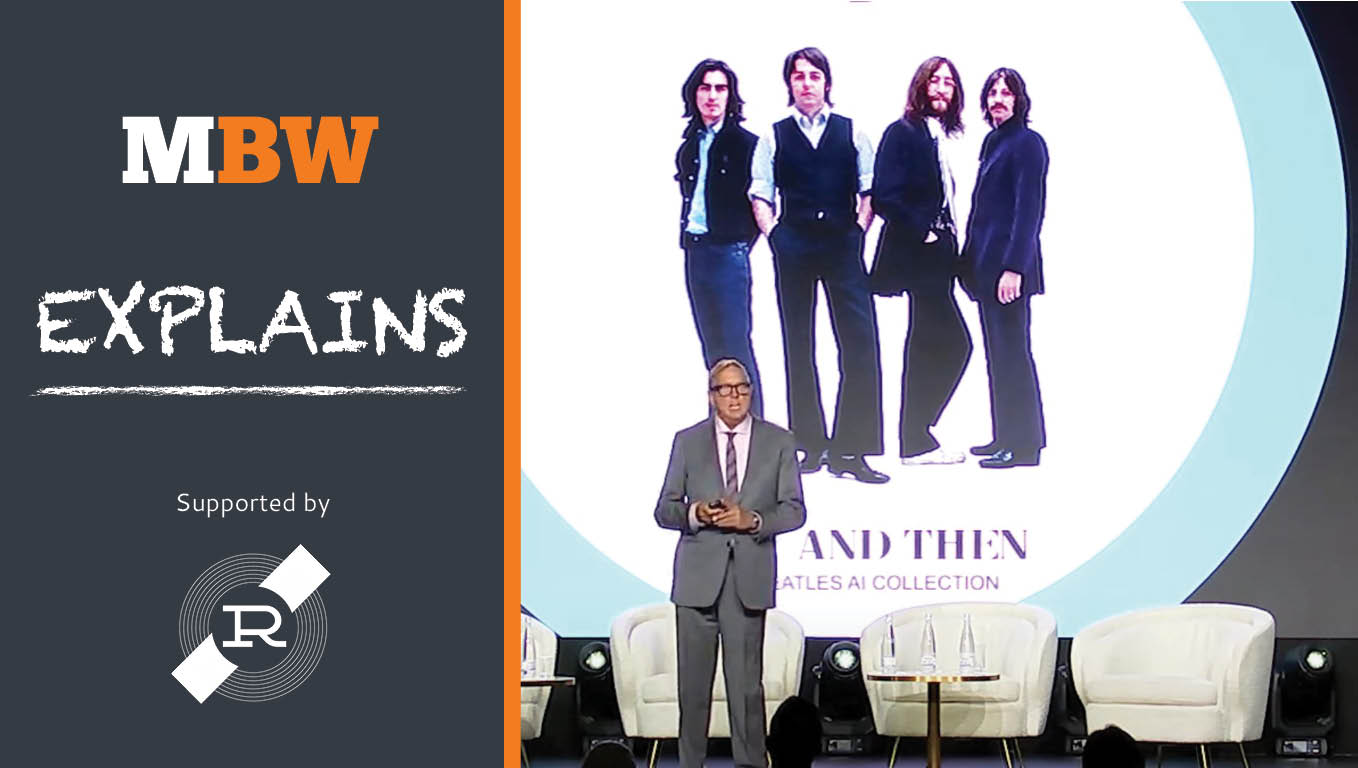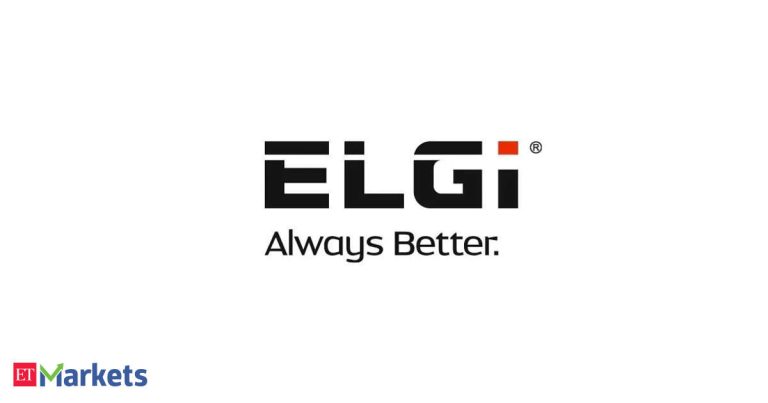Michael Nash, EVP and Chief Digital Officer at Universal Music Group, delivered a keynote presentation at the UN’s AI for Good summit in Geneva on Tuesday (July 8).
This summit, which counts over 13,000 registered delegates, gathers UN decision makers, politicians, ambassadors, and other stakeholders to discuss AI in the context of the UN Sustainable Development Goals.
The event is organized by the UN’s ITU together with 40 UN organizations and the Swiss government.
During his speech, Nash offered insights into how the world’s largest music company is approaching artificial intelligence, and why he believes “market-based solutions are the answer” to AI’s challenges in music.
He added that UMG has “enabled numerous entrepreneurs” and is “working with a wide range of major tech platforms in announced partnerships and with significant licensing deals in the works”.
UMG has been a key advocate for the responsible and ethical use of AI in music and the company has already inked a number of partnerships in the AI space.
In October, it teamed up with AI company KLAY Vision Inc., with plans to work on “a pioneering commercial ethical foundational model for AI-generated music that works in collaboration with the music industry and its creators”.
Amongst its various other AI-related deals over the past couple of years, UMG has also partnered with YouTube on an “AI incubator,” and with ProRata.ai, an attribution startup focused on Gen AI.
UMG has also been a prominent figure in the fight against the unauthorized use of songs and recordings for training AI platforms, joining lawsuits against AI platform Anthropic, as well as AI music generators Suno and Udio. (Bloomberg reported last month that the majors are in licensing talks with those latter two platforms.)
Elsewhere in Nash’s presentation, he also touched on Universal’s broader industry involvement, noting that the company “helped launch the Human Artistry Campaign” in 2023, which “now has more than 170 supporting organizations from over 40 countries” working to “protect creators’ rights in the age of AI.”
Nash concluded the keynote by reiterating his belief that “AI can be instrumental to our future, and that it’s the artists who will continue to shape global culture, channeling disruption into transformation, as they have always done”.
He added: “In our artist-centric vision, AI innovation can drive music culture, and in so doing, generate even greater benefits to the quality of life on this planet.”
“In our artist-centric vision, AI innovation can drive music culture, and in so doing, generate even greater benefits to the quality of life on this planet.”
Michael Nash
Nash was introduced to the stage by Don Was, the musician, record producer, and President of the iconic UMG-owned jazz label Blue Note Records.
Was noted that “one of the biggest changes we’re facing is the introduction of artificial intelligence” and that “some of us are excited, some are nervous, and everyone questions [what this] means for creativity? What does it mean for originality? What does it mean for profound artistic communication?”
He added: “At UMG, we’re very lucky to have someone leading that conversation with clarity and with purpose, and that’s Michael Nash. He’s the guy who oversees our global digital strategy, working with platforms and working with partners and policy makers to make sure our artists can thrive in these evolving times.
“More than that, Michael understands that creativity isn’t just data, it’s emotion, it’s connection, it’s humanity. He sees AI as not as a threat to humanity, but as a tool that, if used the right way, can support artists, protect their rights and even help spread their voices further.”
Here are four things that stood out from Nash’s presentation…
1. NASH ARGUES THAT ‘COPYRIGHT IS NOT THE ENEMY OF INNOVATION’
One of the most striking moments in Nash’s keynote came when he directly challenged what he called “the anti-copyright premise of some AI industry commentators,” arguing that this perspective is “deeply flawed.”
“Copyright is not the enemy of innovation, quite the opposite,” Nash told the audience. “Media tech convergence predicated on respect for copyright has produced a multi-trillion Euro economy, and that started with Apple marrying iPod with iTunes in 2003 as a critical early step embracing licensed music [to] create the first trillion dollar company.”
“Copyright is not the enemy of innovation, quite the opposite.”
Nash pointed to Steve Jobs as having “[written] the blueprint” for tech companies working with the creative community, noting that “Google, Amazon, Meta and many other companies are following in various ways, with their own music and content strategies.”
The UMG executive emphasized that “tech collaboration with the creative community, respecting the value of artists’ work and harnessing their innovation has produced enormous cultural and economic benefit.”
2. UMG’S AI STRATEGY IS BUILT ON A SIMPLE PHILOSOPHY: ‘CENTER THE CONVERSATION ON ARTISTS’
Nash outlined Universal’s approach to AI development, which he said is based on a straightforward principle of putting artists first.
“Universal’s strategy on AI is based on a simple philosophy: center the conversation on artists, defend their rights and interests, and from that foundation, forge new creative and commercial opportunities,” Nash explained.
“Universal’s strategy on AI is based on a simple philosophy: center the conversation on artists.”
He stressed that while “the scope of technological disruption may be unprecedented with AI, that doesn’t change a fundamental truth” – that “it’s artists who’ve always shaped global culture”.
Nash argued that successful AI implementation in music requires starting “from a foundation that’s built on copyright and associated rights,” warning that “you can’t forge new business models with no rights. If you don’t claim a seat at the dinner table, you might wind up on the menu.”
The executive emphasized that “the future of AI music will not be the regurgitation of derivative knock-offs of artists’ music to cannibalize their current marketplace. It will be activated by putting new tools in the hands of artists so they can expand the market and create new experiences for their fans.”
3. UMG SHOWCASED THREE MAJOR AI PROJECTS: THE BEATLES’ ‘NOW AND THEN,’ SOUND THERAPY, AND KEITH URBAN’S LATEST MUSIC VIDEO
Nash used his keynote to highlight specific examples of how Universal is already implementing AI technology in collaboration with artists, demonstrating practical applications rather than theoretical possibilities.
The most high-profile example was The Beatles’ Now and Then, which Nash described as “the last song from The Beatles, written and then sung by John Lennon almost 50 years ago.”
He explained that “using next generation AI source separation technology, Lennon’s voice was excavated from a cassette recording that had been completely unusable for decades, waiting for this moment in the evolution of AI to arrive.”
Nash noted that the track, released in November 2023, “won the [2025] Grammy for Best Rock Performance” – marking “the first time any recording utilizing AI technology has been so honored in a major category.”
The second project Nash highlighted was Universal’s collaboration with Apple Music on its Sound Therapy initiative, which he said “employs our own ethically developed, patented Gen AI system.”
This technology “seamlessly integrates scientifically calibrated audio supplements into the recording for some of our biggest artists, including Imagine Dragons, Katy Perry and Kacey Musgraves,” creating “immersive artist-approved remixes that deliver a range of wellness benefits to subscribers.”
Finally, Nash provided an exclusive preview of an upcoming Keith Urban music video for Straight Lines, created using “Moon Valley Gen AI and other ethically trained tools.”
4. NASH DOWNPLAYED THE IMPACT OF AI BAND THE VELVET SUNdown AND SHARED NEW CONSUMER RESEARCH HIGHLIGHTING AUDIENCES’ PREFERENCE FOR ‘REAL ARTISTS’
During a panel discussion following his keynote, Nash addressed concerns about AI-generated music by citing data from streaming platforms and new consumer research that suggests human artists remain central to audience preferences.
Referencing data from Deezer, Nash noted that while nearly “20% of the uploads to the platform are pure AI-generated,” these uploads represent only “half of 1% of the consumption,” highlighting the limited audience appetite for purely AI-generated music.
Nash specifically downplayed the significance of The Velvet Sundown, an AI-generated band that has attracted a lot of media attention over the past week. “A lot of novelty will come along,” said Nash. “People are talking about Velvet [Sundown], which is this fake AI artist [project], you know, maybe a conceptual project,” he added.
“There’s been a lot of publicity about that. Because of all the publicity, they have 1 million listeners on Spotify. That would not break them into the top 10,000 acts in terms of the size of the monthly [listening], because these are huge platforms that have tremendous volume.”
Nash then shared new consumer research from Universal, revealing that “about half of consumers are interested in AI and music, but that’s mostly in terms of the utility of the service. They want to have better discovery. They want to have better organization recommendations, better interaction with the content.”
“About half of consumers are interested in AI and music, but that’s mostly in terms of the utility of the service.”
Crucially, among those consumers interested in AI in music, Nash noted “an articulation of what we would call a moral code. The vast majority, 70-75% say real artists matter the most. It’s the story of the artists, who they are. It’s expression of their identity. That’s what I connect with.”
Nash said: “I think that the marketplace is confirming what [was said earlier], which is that people are connecting through music, understanding the expression of the human experience. You know, people connecting through that principle that’s still the driving force.”

Reservoir (Nasdaq: RSVR) is a publicly traded, global independent music company with operations across music publishing, recorded music, and artist management. Music Business Worldwide








